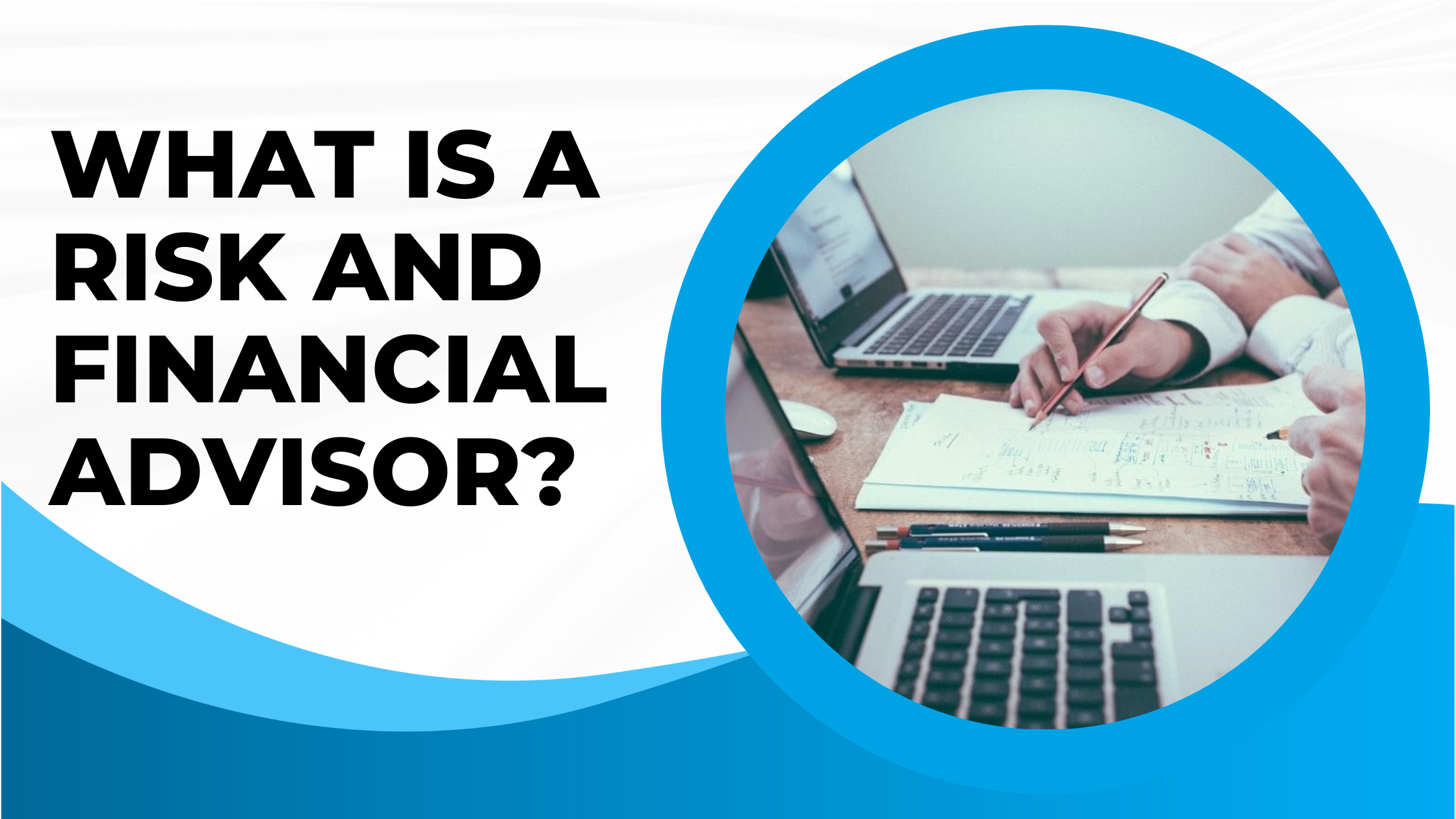Table of Contents
ToggleRole of a risk and financial advisor.
A risk and financial advisor is a professional who helps you decide how you use your money, where to invest, and other financial health issues.
They also help you identify, manage, and develop strategies to minimize financial risk.
Risk and financial advisors have multiple functions, but in short, they are your financial planning partner.
Protecting Long-Term Plans
If you have any long-term plans, having a financial and risk advisor is important. For example, if you want to retire in a certain number of years and send your children to college, a financial advisor has the right skills and knowledge to help you realize these plans.
Your financial and risk advisor can create a savings plan for you, tell you what types of insurance you should take out, what type of bank account you need, and plan your estate and tax situation. He will do this through financial analysis and valuation.
One of the tasks of a risk and financial advisory is to advise you about savings and budgeting. They will also explain how to understand insurance, tax, and investment issues.
First Steps with a Financial Advisor
The first step in your counseling will be gathering information about your financial health. The advisor will ask you to complete a detailed questionnaire. This will help you get an overall picture of your income, expenses, liabilities, and assets.
This questionnaire will also inform the financial advisor about future needs such as pensions, retirement plans, real estate projects, and financial obligations.
Risk and Financial Advisory

Risk and financial advisory professionals can help businesses or companies understand the impact of risk on their operations.
They can also advise how to mitigate risk effectively to make informed and intelligent decisions about business processes, technology, and operations.
Risk Management Strategies
The assessment for companies touches on specific and more subjective investment issues like enterprise risk tolerance and capacity. The risk and financial advisory are directly involved in designing and implementing risk management strategies and processes.
Having strategies to manage risk is important to the success of any business as it allows you to ensure business resilience, take advantage of emerging opportunities, and meet business objectives.
A financial and risk advisor has the knowledge and skills to gather and understand financial information to develop a business plan for the client. They also provide advice and expertise that brings competitive value and advantages to the business over competing businesses.
Additionally, they identify and analyze potential business alliances to develop opportunities to improve performance and solve business problems.
Financial Planning
Once the risk and financial advisory gather all the information from the questionnaire, they can process it to create a comprehensive financial plan.
The financial plan uses all the key findings and summarizes the current financial situation, including net worth, assets, liabilities, and working capital.
At the same time, it also summarizes the goals and objectives you discussed in advance.
In the analysis of this extensive document, the financial advisor provides more information on various topics such as risk tolerance, estate planning details, family situation, long-term care risk, and other current and future financial issues.
Personal Financial Simulations
Based on the assessment results, the financial plan will create simulations of the best or worst financial scenario for your retirement.
If the projection is not favorable, it is an appropriate time to take steps to avoid that catastrophic scenario.
In addition, if you are married, the financial plan also considers the financial problems that may arise as a couple.
A Financial and Risk Advisor’s Action Plan
An advisor’s job is to help you with all aspects of your financial health. You can work with a financial advisor even if they do not directly manage your finances or recommend investments.
However, if your main objective is to know how to invest your money, risk and financial advisory will be your best ally for achieving your goals. The advisor will help you allocate your assets according to your risk tolerance and capacity.
Asset Allocation
Asset allocation determines what percentage of your total financial portfolio will be allocated among various asset classes.
For example, a more risk-averse person will concentrate more on government bonds, certificates of deposit, and money market holdings.
However, a person more comfortable with risk is more likely to purchase stocks, corporate bonds, or even invest in real estate.

What Does a Risk and Financial Advisor Do?
As we have already described in this post, risk and financial advisory have many tasks to help different people in different situations.
Their knowledge and skills help clients understand and assess risks and identify business opportunities. However, their roles may vary depending on the field in which they perform their work.
Audit and Security
In this area, a financial and risk advisor advises and efficiently communicates audit and assurance work scope to stakeholders. He applies legal, professional, and ethical standards and plans and produces a detailed report on the audit findings.
Thus, they can provide effective solutions and operations for problems arising from the audit.
Business Risk and Control
Risk and financial advisors help clients make more confident decisions for their businesses in the business environment. It enables clients to embrace change, grow their business, accelerate performance, and efficiently navigate periods of crisis or controversy to emerge resiliently from troubled financial situations.
It can include operations in the company’s accounting and internal controls, transactions, alliances, acquisitions, regulatory support, and strategic risk.
Real Estate Analysis
The real estate risk and financial advisor will be involved and committed to helping the client understand, analyze and respond to various commercial investment opportunities.
Specifically, they advise individuals to manage capital assets and real estate investments effectively to increase returns and reduce risk.
Technology
Here, risk and financial advisors identify and analyze technology risk as companies change and improve the effectiveness of operational, financial governance, and control processes. And so they can offer recommendations to improve those operations and help business owners with their activities and compliance.
As a consumer, it is extremely important not to follow what a financial advisor recommends blindly. Remember, first and foremost, it is your money, and you decide what actions you take with it.
Once you have a specific investment plan, you will receive account statements from your advisor. This will keep you informed at all times regarding the updating of your portfolio. The advisor should also schedule regular meetings to review the goals met and in progress.
To hire or not to hire?
Hiring a financial and risk advisor is a personal decision. However, it is a good time to consider finding a good advisor if you feel pressured, stressed, or confused about your financial status.

